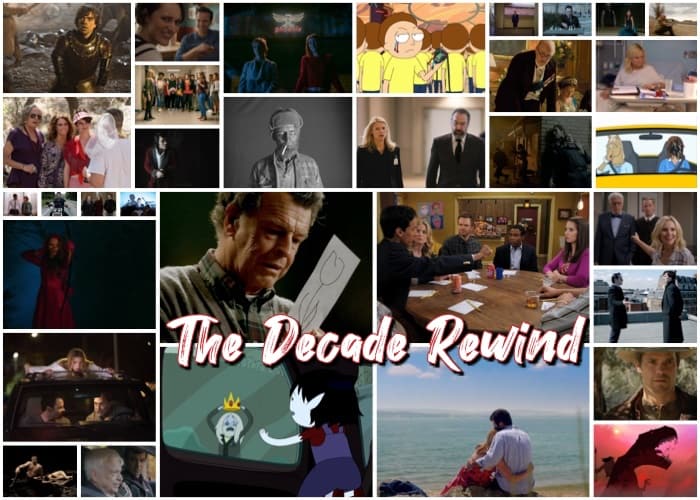
30. “If-Then-Else” – Person of Interest
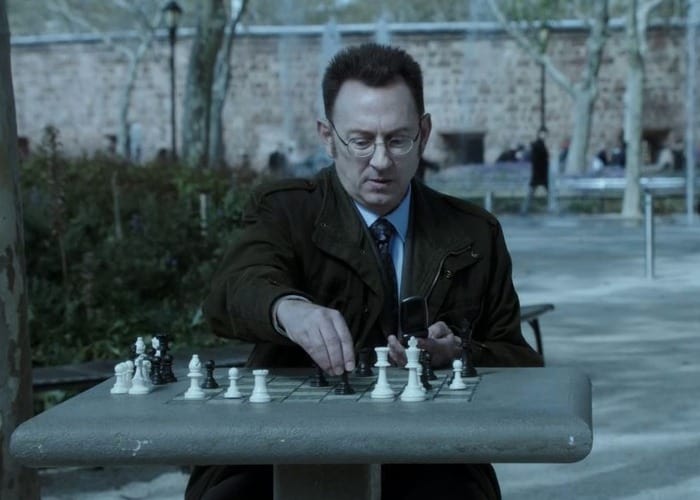
There’s a reason season four’s “If-Then-Else,” written by Denise Thé, is rated 9.9/10 on IMDb. The episode title is a reference to a type of conditional statement used in computer programming languages (if X occurs then Y happens). In this episode, Team Machine (as they are known among fans) are trying to prevent a rival AI from crashing the New York Stock Exchange, but have been cornered in a room into which their evil counterparts are spraying bullets in an attempt to thwart them from accomplishing their mission. Out of ideas, it falls to their AI to devise a plan of escape. Although the entire episode is around 40 minutes, because one of the show’s main characters is a hyper-advanced AI system, the episode is told and retold many times as The Machine runs through hundreds of thousands of simulations of possible escape scenarios. Most of these end in mission failure, all of them are entertaining.
Each simulation, therefore, presents an opportunity for the cast to experiment with their characters; in some, they explore emotional alternate endings and in others comically succinct dialogue. The latter occurs when The Machine senses time is running out and begins to simplify its simulation, which means instead of delivering their usual dialogue, characters are instead reduced to delivering words that summarize the tone of their typical lines; we get a “coolly delivered sadistic warning” from Jim Caviezel’s character, a “funny yet insightful retort” from Amy Acker’s, and a “gentle exhortation to further action” from Michael Emerson’s. After the AI completes its run of several failed simulations, it eventually lands on a winner and all is saved. But the real success story is the years of buildup Person of Interest did to introduce, develop, and acclimate us to the idea of The Machine so that it could shine as the lead character in this series-defining episode. (Naomi Elias)
29. “Episode 4.6” – Catastrophe
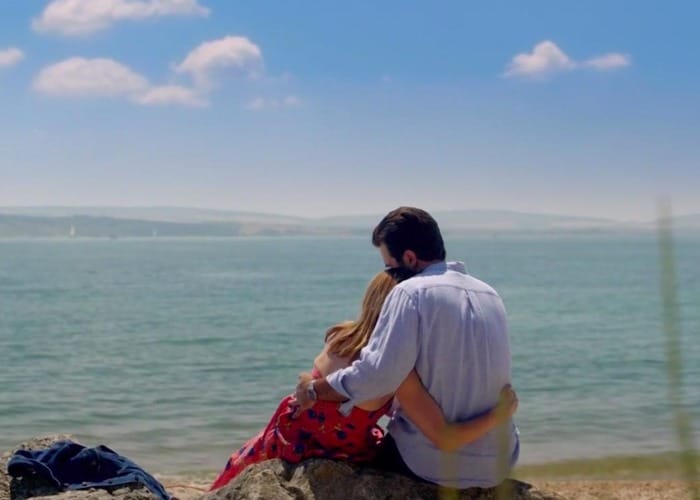
Catastrophe’s final episode offers absolutely nothing in the way of resolution, and that’s what makes it so perfect. For four seasons, we witnessed the trials and tribulations of a fling that resulted in a pregnancy and subsequent marriage. The show was a warts-and-all story about love, but the central characters – Rob and Sharon – managed to stick together no matter what. The finale’s closing moments see the couple swim out into unpredictable waters, and we’ll never know if they made it back alive. However, as bleak as that notion is, the couple ended the story on their terms, and that’s fitting for a show that never gave us the comfort and coziness we craved for these characters. (Kieran Fisher)
28. “Crate” – Veep
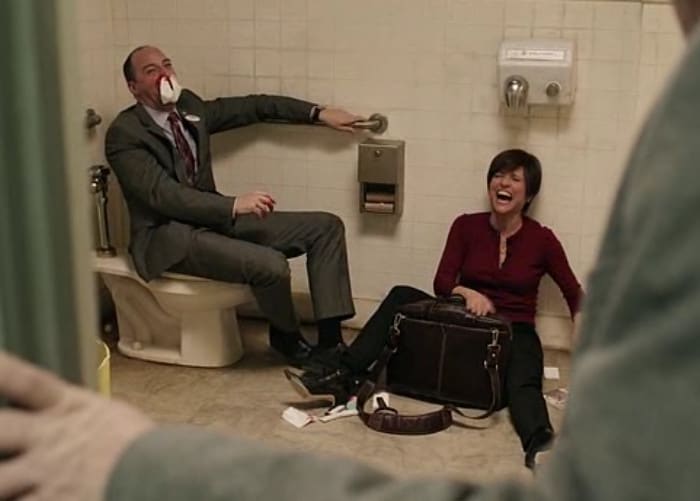
“Crate” possesses many of the expected Veep delights. From great Jonah insults (“If you tried to clap you’d miss your hands”) to Julia Louis-Dreyfus’s stellar comedic line readings as the uptight wannabe commander in chief, this episode delivers on the qualities we love about the HBO comedy. But it also reaches new highs with what is, for my money, the best scene in the whole series. After she is caught on tape mocking donors, Selina thinks her goose is cooked when it comes to one day being president. And then, it happens. News comes that POTUS is resigning. Selina, shellshocked, processes the news in a dingy bathroom with Gary (Tony Hale) by her side. It’s an incredulous sight: two people stunned with excitement, unable to properly take in the information. They laugh and cry, Gary gets a nosebleed. This scene is representative of what Veep was at its best: hilarious, genius, and home to some of the finest acting on TV. As if that wasn’t enough, “Crate” also gave us the all-time great line, “Siri why does God allow suffering?” A quote for the ages, and one of the millions of reasons Veep was one of the best shows of the decade. (Anna Swanson)
27. “Bloody Harlan” – Justified
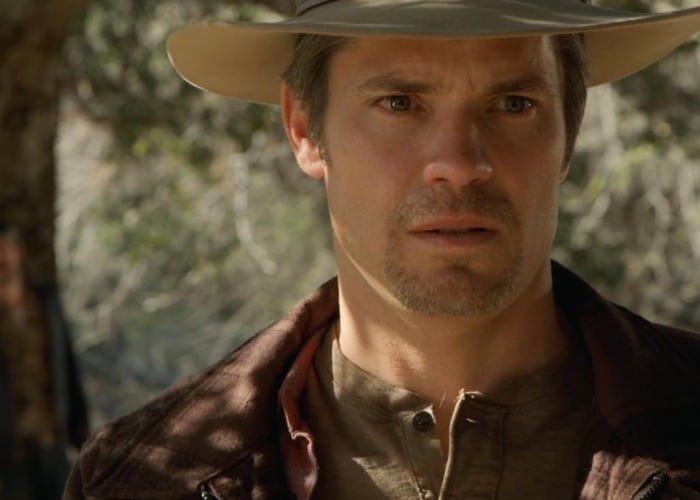
All of Graham Yost’s Justified has an unparalleled moody-cool sheen to it, thanks partly to the source material written by Western and crime master storyteller Elmore Leonard, and largely to the audience-melting charisma of Timothy Olyphant. Olyphant’s Raylan proves himself the perfect modern cowboy time and time again in a series that juxtaposes old school heroic impulsivity with the realities of the U.S. legal system, cultural landscape, and the hero’s own age, but few episodes pack a wallop quite as well as the second season finale, “Bloody Harlan.” It’s an hour that includes a deadly explosion, the shooting of two main characters, a pregnancy reveal, a poisoning, some good old-fashioned revenge, and Raylan himself strung up by his pretty little bootstraps. If that’s not enough, the episode also lays groundwork for Raylan’s cautious yet too-forgiving relationship with Boyd Crowder (Walton Goggins), which would later be revealed as the soul of the series. Best of all, though, is the satisfying ending for the Bennett clan’s storyline, an arc which pulls from Harlan’s real-life coal county history and sees two of the greatest actors of their respective generations – Margo Martindale and a young Kaitlyn Dever – face off in an unbearably tense, surprisingly heartfelt showdown. (Valerie Ettenhofer)
26. “The Reichenbach Fall” – Sherlock
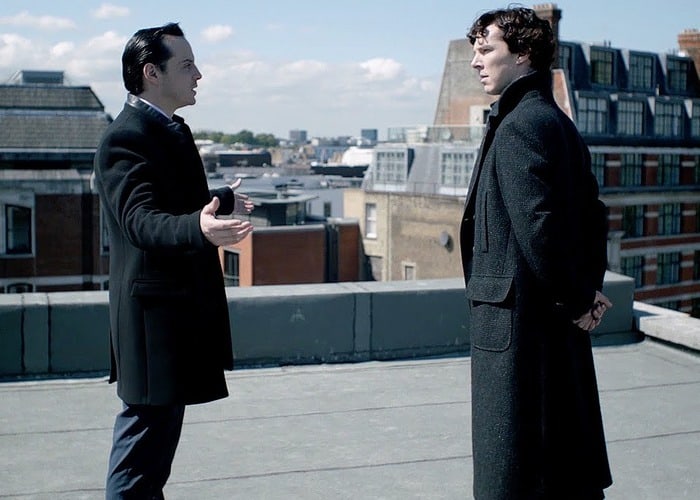
“The Reichenbach Fall” opens with a grim statement from John Watson: Sherlock Holmes is dead. In the series two finale, recurring villain Moriarty’s obsession with Sherlock comes to an explosive and devastating head. In committing three impossible break-ins at the same time, Moriarty builds a persona in the media, dubbing himself “the world’s greatest criminal” after he’s acquitted of all three. Driven by Andrew Scott’s perfect performance as Moriarty, this episode is impossible to predict and extremely tense. Moriarty’s sole purpose is to destroy Sherlock and his reputation for no other reason but to see if he can. He promises to be a “good ole fashion villain” and keeps his word. By the end of the episode, even the audience starts to feel swayed by his charm and manipulation. Sherlock and Moriarty are two sides of the same hyper-observant coin, each desperate to prove they are smarter. Their rivalry leads to a life or death battle of wits – literally. At the end of the episode, just when you finally think you have a grip on what’s real and what’s not, there’s one final twist and the series ends on a brutal cliffhanger, begging to be rewatched under a magnifying glass for all the clues we missed along the way. (Kristen Reid)
25. “Pancakes” – You’re the Worst
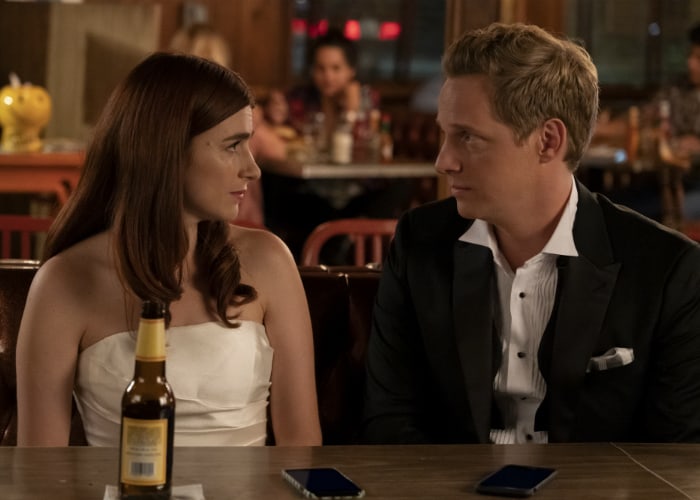
Across its five seasons, this twisted comedy series that started with a simple premise – what if two insufferable people who didn’t believe in love tried to date? – deepened into a funny, emotionally raw story with wells of profound vulnerability. Realistically, Gretchen’s (Aya Cash) depression and Jimmy’s (Chris Geere) selfishness never go away, and the series finale sees them make a beautiful pact of acknowledgment on their long-awaited wedding day. Between the “we choose” speech, the Mountain Goats song flash-forward, and Gretchen’s final, bleak caveat, You’re the Worst has perhaps the strongest last five minutes of any series finale in recent years. You’re the Worst cracks open even the most guarded hearts with an ending that weights the complicated, terrifying realities of love and decides that it’s a thing worth doing anyway. (Valerie Ettenhofer)
24. “Trompe L’Oeil” – Westworld
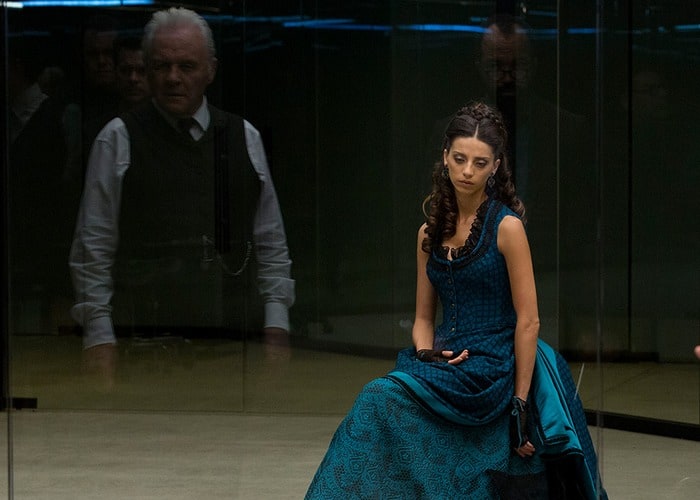
The first season of Westworld was getting a bit sleepy until “Trompe L’Oeil” came around. Suddenly the show kicked into high gear and hasn’t slowed since. Jeffrey Wright was given ample time to exhibit his depth as a performer here. It’s a shocking episode, made all the more so by Frederick E.O. Toye’s careful direction and the performances of Anthony Hopkins, Sidse Babett Knudsen, and Wright. There’s no shortage of plot twists on Westworld and “Trompe L’Oeil” was the first major indication of that fact. Hinting at the larger surprises to come without giving anything away, “Trompe L’Oeil” feels like the perfect amuse-bouche in the whole scope of the series, whetting our appetite for more as a far greater twist looms in the background. (Cyrus Cohen)
23. “Ten of Swords” – Halt and Catch Fire
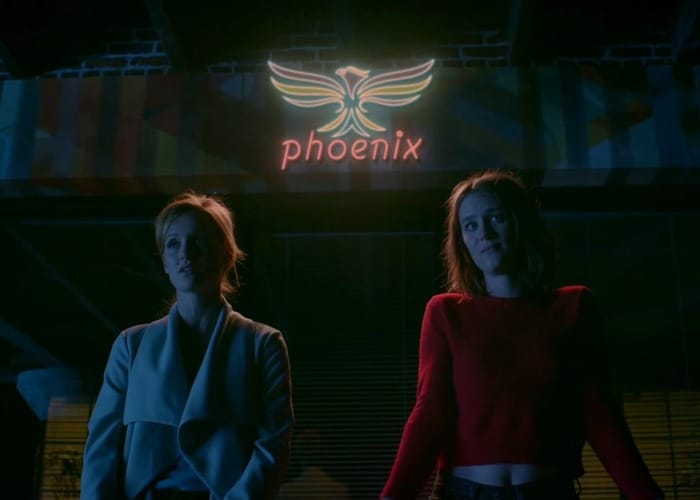
Halt and Catch Fire is an under-the-radar show if ever there was one, and maybe that’s the point. Across the span of its four seasons, the show reinvented itself as often and as brilliantly as its characters – a group of fictional entrepreneurs and engineers at the forefront of the internet revolution – reinvented the companies and projects that they hoped would strike gold. A series about tech seems like the antithesis of emotional storytelling, but HACF evolved into a personal story about deeply flawed and deeply lovable thinkers. The series finale, “Ten of Swords,” brought everything home. Perpetual salesman Joe MacMillan (Lee Pace) found a place of authenticity, and that itself would’ve been enough of a return on our investments, but the series went the extra mile with two rewarding scenes between Cameron (Mackenzie Davis) and Donna (Kerry Bishé). First, the two ex-business partners and best friends lovingly imagine what their next venture might be like, from its initial success down to its inevitable breakdown. Later, after a diner breakfast that’s meant to mark Cameron’s last day in town, Donna has an epiphany. She rushes outside, eyes aglow, and says, “I have an idea!” We don’t know what it is, and we don’t need to. The joy comes from the creation. (Valerie Ettenhofer)
22. “15 Million Merits” – Black Mirror
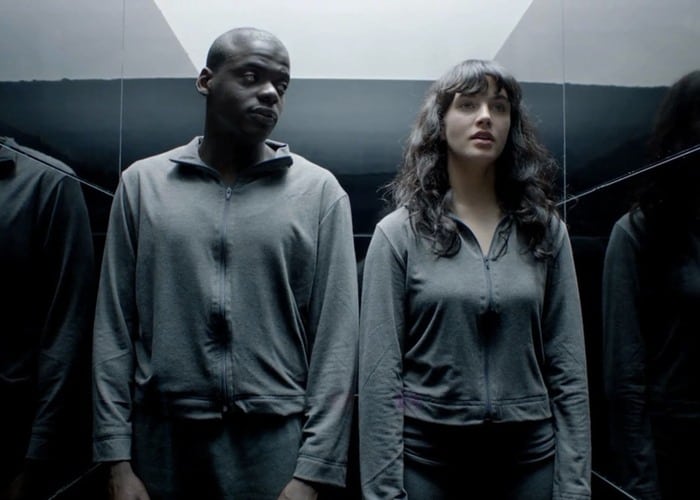
“15 Million Merits” was the first episode of Black Mirror filmed, and it was made on an impressively small budget, using a single set. Following along with creator Charlie Brooker’s goal to explore “the way we live now – and the way we might be living in 10 minutes’ time if we’re clumsy,” “15 Million Merits” explores the audience’s relationship to the media we consume and our lack of sympathy when it becomes exploitative. Fame as a commodity for social mobility (but never really bringing happiness) is a theme that gets revisited throughout the run of Black Mirror, and Daniel Kaluuya as Bing Madsen and Jessica Brown Findlay as Abi shine in this underdog-tale-gone-wrong. Years after watching this episode, I am still unsettled whenever I hear “Anyone Who Knows What Love Is (Will Understand)” play on the radio. (Samantha Olthof)
21. “Remedial Chaos Theory” – Community
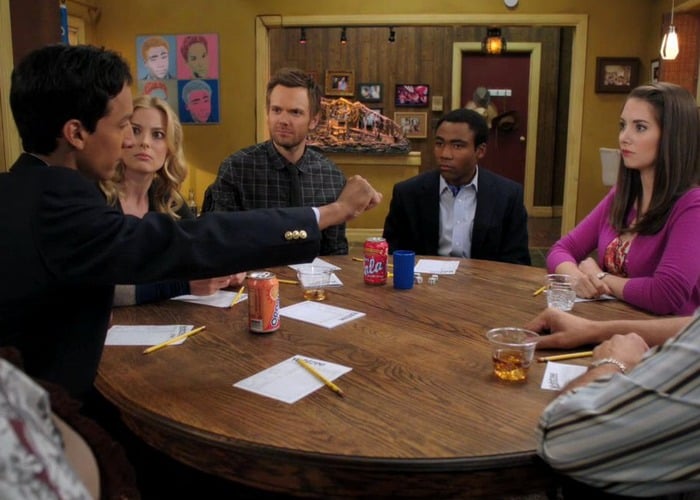
Community elevated the half-hour sitcom format by including ingenious deconstructions of filmmaking tropes, on top of its already funny premise. It’s an ode to filmmaking, poking fun at tropes that deserve to be poked, while lovingly re-enacting ones that are treasured. “Remedial Chaos Theory” provides an unusual episode structure mapping out six parallel timelines, each wackier than the last. It explores the role of each character in the group through their absence and also introduces ‘The Darkest Timeline’ versions of the main characters, who return later in the series to wreak havoc. Silly and heartfelt, it offers the best of Community‘s six-seasons (AND A MOVIE). (Samantha Olthof)
Related Topics: Decade Rewind


